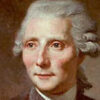We two make banquets of the plainest fare;
In every cup we find the thrill of pleasure;
We hide with wreaths the furrowed brow of care
And win to smiles the set lips of despair.
For us life always moves with lilting measure;
We two, we two, we make our world, our pleasure.Ella Wheeler Wilcox (1850-1919) American author, poet, temperance advocate, spiritualist
Poem (1900-05), “We Two,” st. 2, The Century Magazine, Vol. 60, No. 1
(Source)
Collected in Poems of Power (1902)
Quotations about:
coping
Note not all quotations have been tagged, so Search may find additional quotes on this topic.
Study has always been for me the sovereign remedy against life’s unpleasantness, since I have never experienced any sorrow that an hour’s reading did not eliminate.
[L’étude a été pour moi le souverain remède contre les dégoûts de la vie, n’ayant jamais eu de chagrin qu’une heure de lecture n’ait dissipé.]
Charles-Lewis de Secondat, Baron de Montesquieu (1689-1755) French political philosopher
Pensées Diverses [Assorted Thoughts], # 213 (1720-1755) [tr. Clark (2012)]
(Source)
(Source (French)). Alternate translations:Study has been my sovereign remedy against the worries of life. I have never had a care that an hour's reading could not dispel.
[Source (1826)]Study is a sovereign remedy against the troubles of life; there is no vexation which an hour's reading cannot mitigate.
[E.g. (1877)]Study has been to me a sovereign remedy against the vexations of life, having never had an annoyance that one hour's reading did not dissipate.
[E.g. (1905)]Study has been my sovereign remedy against life's disappointment; I have never known any distress that an hour's reading did not relieve.
[ed. Guterman (1963)]
The neurotic doesn’t know how to cope with his emotional bills; some he keeps paying over and over, others he never pays at all.
Mignon McLaughlin (1913-1983) American journalist and author
The Neurotic’s Notebook, ch. 9 (1963)
(Source)
Let not these things thy least concern engage;
For though thou fret, they will not mind thy rage.
Him only good and happy we may call
Who rightly useth what doth him befall.
[τοῖς πράγμασιν γὰρ οὐχὶ θυμοῦσθαι χρεών:
μέλει γὰρ αὐτοῖς οὐδέν: ἀλλ᾽ οὑντυγχάνων
τὰ πράγματ᾽ ὀρθῶς ἂν τιθῇ, πράσσει καλῶς]Euripides (485?-406? BC) Greek tragic dramatist
Bellerophon [Βελλεροφῶν], frag. 287 (TGF) (c. 430 BC) [Morgan (1718)]
(Source)
Quoted in Plutarch, "De Tranquilitate Animi [On the Contentedness of the Mind]," sec. 4. (467a). Nauck frag. 287, Barnes frag. 132, Musgrave frag. 24.
(Source (Greek)). Alternate translations:Nor ought we to be angry at Events;
For they our anger heed not: but the man
Who best to each emergency adapts
His conduct, will assuredly act right.
[tr. Wodhull (1809)]Events will take their course, it is no good
Our being angry at them; he is happiest
Who wisely turns them to the best account.
[tr. Shilleto (1888), frag. 298]It does no good to rage at circumstance;
Events will take their course with no regard
For us. but he who makes the best of those
Events he lights upon will not fare ill.
[tr. Helmbold (1939)]There is no point in getting angry at circumstances. They are uncaring, utterly unconcerned.
But a man who responds to them in the right way, he fares well.
[tr. Stevens (2012)]One should not get angry with affairs, for they show no concern; but if a man handles affairs correctly as he encounters them, he fares well.
[tr. Collard, Hargreaves, Cropp (1995)]
I hasten to laugh at everything, lest I should have to weep at everything.
[Je me presse de rire de tout, de peur d’être obligé d’en pleurer.]
Pierre Beaumarchais (1732-1799) French playwright, polymath [Pierre-Augustin Caron de Beaumarchais]
The Barber of Seville [Le Barbier de Séville], Act 1, sc. 2 [Figaro] (1773) [tr. 1896]
(Source)
(Source (French)). Alternate translations:I make haste to laugh at everything for fear of being obliged to weep.
[Motto for the London Figaro (1871)]I am eager to laugh at all for fear of being obliged to weep.
[Source (1887)]I hasten to laugh at everything for fear that otherwise I might be forced to weep over it.
[tr. Taylor (1922)]I force myself to laugh at everything for fear of being forced to weep at it.
[tr. Bermel (1960)]I forced myself to laugh at everything for fear of having to weep.
[tr. Wood (1964)]I always hasten to laugh at everything for fear that I may be obliged to weep.
[tr. Luciani (1964)]]I make a point of laughing at everything, for fear of having to cry.
[tr. Anderson (1993)]I make a point of laughing at life, because otherwise I'm afraid it would make me weep.
[tr. Coward (2003)]I quickly laugh at everything, for fear of having to cry.
[Bartlett's]
And endless other variations ("I force myself to laugh at everything, for fear of having to cry") in one-off passages.
Sometimes given, in French, as "Je me hâte de me moquer de tout, de peur d'être obligé d'en pleurer."
Compare to Byron (1820).
For narcissists, setbacks are not opportunities to learn; they’re problems caused by somebody else who got in their way or sabotaged their plans.
Jeffrey Kluger (b. 1954) American journalist, author
The Narcissist Next Door, ch. 1 (2014)
(Source)
Men have made an idol of luck as an excuse for their own thoughtlessness. Luck seldom measures swords with wisdom. Most things in life quick wit and sharp vision can set right.
Democritus (c. 460 BC - c. 370 BC) Greek philosopher
Frag. 119 (Diels) [tr. Bakewell (1907)]
(Source)
Bakewell lists this under "The Golden Sayings of Democritus." Freeman notes this as one of the Gnômae, from a collection called "Maxims of Democratês," but because Stobaeus quotes many of these as "Maxims of Democritus," they are generally attributed to the latter.Alternate translations:
- "Men have fashioned an image of Chance as an excuse for their own stupidity. For Chance rarely conflicts with intelligence, and most things in life can be set in order by an intelligent sharpsightedness." [tr. Freeman (1948)]
- "Men fashioned the image of chance as an excuse for their own thoughtlessness; for chance rarely fights with wisdom, and a man of intelligence will, by foresight, set straight most things in his life." [tr. Barnes (1987)]
A man who gets too happy when prosperity comes
trembles when it goes.[Quem res plus nimio delectavere secundae,
mutatae quatient.]Horace (65–8 BC) Roman poet, satirist, soldier, politician [Quintus Horatius Flaccus]
Epistles [Epistularum, Letters], Book 1, ep. 10 “To Aristius Fuscus,” l. 30ff (1.10.30-31) (20 BC) [tr. Fuchs (1977)]
(Source)
(Source (Latin)). Other translations:Who so was to much ravished and to much joy did take
In flow of wealth, him chaunge of flow yea to much shall yshake.
[tr. Drant (1567)]Him, whom a prosp'rous State did too much please;
Chang'd, it will shake.
[tr. Fanshawe; ed. Brome (1666)]Those whom the smiles of Fate too much delight,
Their sudden Frowns more shake and more affright.
[tr. Creech (1684)]They who in Fortune's smiles too much delight,
Shall tremble when the goddess takes her flight.
[tr. Francis (1747)]Who prizes fortune at too high a rate,
Will shrink with horror at an alter'd state.
[tr. Howes (1845)]He who has been overjoyed by prosperity, will be shocked by a change of circumstances.
[tr. Smart/Buckley (1853)]Take too much pleasure in good things, you'll feel
The shock of adverse fortune makes you reel.
[tr. Conington (1874)]Whoe'er hath wildly wantoned in success.
Him will adversity the more depress.
[tr. Martin (1881)]Him whom prosperity too much elates adversity will shake.
[tr. Elgood (1893)]One whom Fortune's smiles have delighted overmuch, will reel under the shock of change.
[tr. Fairclough (Loeb) (1926)]One overmuch elated with success
A change of fortune plunges in distress.
[tr. A. F. Murison (1931)]One whom a favorable turn of events overjoys
A change for the worse undermines.
[tr. Palmer Bovie (1959)]If Fortune’s been kind
-- Too kind! -- loss will seem more than loss, will seem
Catastrophe.
[tr. Raffel (1983)]Change will upset the man who's always been lucky.
[tr. Ferry (2001)]Those who are overjoyed when the breeze of luck is behind them
are wrecked when it changes.
[tr. Rudd (2005 ed.)]Those who’ve been quick to enjoy a following wind,
Are wrecked when it veers.
[tr. Kline (2015)]
Life is sometimes hard. Things go wrong, in life and in love and in business and in friendship and in health and in all the other ways that life can go wrong. And when things get tough, this is what you should do.
Make. good. art.
I’m serious. Husband runs off with a politician? Make good art. Leg crushed and then eaten by mutated boa constrictor? Make good art. IRS on your trail? Make good art. Cat exploded? Make good art. Somebody on the Internet thinks what you do is stupid or evil or it’s all been done before? Make good art. Probably things will work out somehow, and eventually time will take the sting away, but that doesn’t matter. Do what only you do best. Make. good. art.
Make it on the good days too.Neil Gaiman (b. 1960) British author, screenwriter, fabulist
Speech (2012-05-17), Commencement, University of the Arts, Philadelphia [10:08]
(Source)
(Source (Video)). In the video, he starts it as "Sometimes life is hard." In the middle, he says it as, "Somebody on the Internet thinks what you're doing ..." He also adds "Make it on the bad days" before the final sentence.
And this made me remember that common saying everyone in China was raised with: “If you can’t change your fate, change your attitude.”
Amy Tan (b. 1952) American novelist
The Kitchen God’s Wife, ch. 17 (1991)
(Source)
Usually quoted without the attribution to a common saying.
Mirth is God’s medicine. Everybody ought to bathe in it. Grim care, moroseness, anxiety — all this rust of life ought to be scoured off by the oil of mirth. It is better than emery. Every man ought to rub himself with it.











